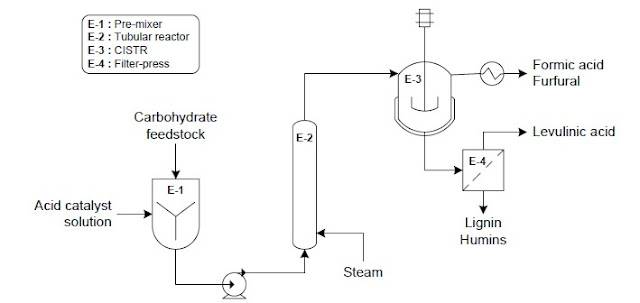Amyris seeks to replicate its Brazilian farnesene plant in Australia
Queensland is in the spotlight once again. The recent
Blog post
(12/06/2017) on the project of a new biorefinery in Mackay (Australia) finished
stating: “Additional potential biorefinery projects are expected to be
announced for regional Queensland in the coming months”. The next announcement
has not taken long.
Amyris, Inc.
(renewable products company) and the Government of Queensland (Australia) announced
two days ago, their plans to develop a leading industrial biotechnology hub in Southeast
Asia (Amyris press
release and Government of Queensland statement).
Those plans call for developing a new plant with support from local partners to
produce farnesene, which is used in cosmetic emollients, fragrances,
nutraceuticals, polymers and lubricants. The proposed biorefinery would aim to
produce 23,000 tons per year of that bioproduct, seeking to replicate the
Amyris reference plant in Brazil. In a previous press
release of Amyris, it was reported that the first industrial production
should occur in 2020 and a $60-$80 million in annual revenue was anticipated.
Figure 1. Amyris fermentation plant located in
the city of Brotas, Brazil (extracted from the article: “Developing
Commercial Production of Semi-Synthetic Artemisinin, and of β-Farnesene, an
Isoprenoid Produced by Fermentation of Brazilian Sugar”)
In San Diego, for the BIO2017 International Convention
(June, 19-22), Annastacia Palaszczuk (Queensland Premier) said that the planned
biorefinery could create upwards of 70 jobs and further boost Queensland’s
reputation globally as a leading biofutures hub. The growing demand for vitamins,
cosmetics and fragrances in the Asian markets supports a new specialty
farnesene fermentation factory in Queensland. It is an ideal location due to
its favorable business climate, extensive sugar industry and geographic
proximity to large Asian markets. According to John Melo (President and CEO at
Amyris): “Like all our new projects, this factory is expected to be sold out
when it starts operating with agreements to supply our current partners in
China and other Asian markets.”
Last December, the Biofutures Acceleration
Program of the Government issued an Expression of Interest to seek proposals
from experienced parties that develop commercial scale biorefinery projects in
Queensland (see post). 26 parties submitted detailed expressions of
interest and Amyris was one of the firms chosen. The company and the Government
of Queensland have successfully partnered on a number of initiatives. The
cooperation initially began with the 2010 Queensland Sustainable Aviation Fuel
Initiative, which studied the feasibility of locally producing aviation
biofuels using Queensland sugar. More recently, in June 2016, Amyris and the
Australian Institute for Bioengineering and Nanotechnology at The University of
Queensland signed a Memorandum of Understanding to support the development of a
Queensland-based biotechnology industry using feedstock from local sugarcane.





